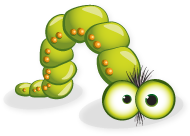All early childhood services across Australia are obligated to follow the National Early Years Learning Framework, a curriculum framework that outlines the key learning outcomes for children prior to school. The framework outlines the key practices that support the best outcomes for young children. The outcomes are:
- Children have a strong sense of identity
- Children are connected with and contribute to their world
- Children have a strong sense of wellbeing
- Children are confident and involved learners
- Children are effective communicators
Within the framework, children will learn science and maths concepts as they observe, investigate, discover, compare, classify, create, predict, explain, verify and analyse. Children will develop language and literacy skills, not just through the spoken word, but also through painting, drawing, sculpture, writing, music, songs, movement, stories, role play, posters, puppets and many open ended questions. Art and music provide many opportunities for creative expression with a focus on the process discovery, interpretation, exploration and imagination.
The curriculum is built around a play-based program, focused on the interests of young children and also the intentional planning undertaken by educators. Play provides opportunities for children to learn as they discover, create, improvise and imagine. Play and learning are entwined in such a way that it is difficult to separate. What we know is that when children play with other children they create social groups, test out ideas, challenge each other’s thinking and build new understandings.

